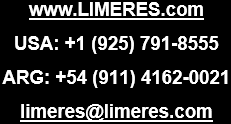Document Retrievers, Legal Errand Runners and Bilingual Spanish Speaking Lawyers
Document retrievers and legal errand runners can obtain a variety of legal documents, depending on their clients’ needs and the scope of their services. Some examples of documents they may be authorized to obtain include:
- Court documents: This may include copies of pleadings, motions, orders, judgments, and transcripts from court proceedings.
- Property documents: This may include property deeds, mortgage documents, and property tax records.
- Corporate documents: This may include articles of incorporation, bylaws, minutes of meetings, and other legal documents related to the formation and operation of a business.
- Government documents: This may include permits, licenses, certificates, and other documents issued by government agencies.
- Medical records: This may include medical reports, test results, and other health-related documents.
- Personal documents: This may include birth certificates, marriage certificates, divorce decrees, and other personal documents.
Document Retrievers, Legal Errand Runners and Bilingual Spanish Speaking Lawyers
It’s important to note that the specific documents that document retrievers and legal errand runners can obtain may vary depending on the laws and regulations of their jurisdiction and the scope of their services. It’s always a good idea for them to check with their clients and/or legal counsel to ensure they have the necessary authorization to obtain any particular document.

Lawyers have access to a wide range of documents, depending on their area of practice and the jurisdiction they are operating in. Here are some examples:
- Court records: Lawyers can obtain access to court records, including case files, transcripts of court proceedings, and judgments.
- Legal pleadings: Lawyers can obtain copies of legal pleadings filed in a case, including complaints, answers, motions, and briefs.
- Contracts and agreements: Lawyers can review and obtain copies of contracts and agreements between parties.
- Corporate documents: Lawyers can obtain access to corporate documents such as articles of incorporation, bylaws, and minutes of meetings.
- Public records: Lawyers can obtain access to public records, including property records, birth and death certificates, and criminal records.
- Government documents: Lawyers can obtain access to government documents, including legislative records, administrative regulations, and agency reports.
- Medical records: Lawyers can obtain access to medical records in cases where they are relevant to a legal matter.
- It’s important to note that there may be limitations on what documents lawyers can obtain. For instance, privacy laws or confidentiality agreements. Additionally, some documents may require a court order or subpoena to be released.






